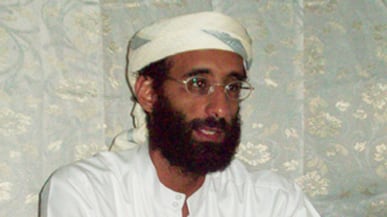Now that the American-born cleric Anwar al-Awlaki is dead, commentators are trying to figure out what it means. Is Awlaki's death a devastating blow to al Qaeda's operations, or merely a blow to its propaganda machine? Or of no importance at all? Does it set a dangerous precedent of extrajudicial assassination against U.S. citizens, or does it preserve the United States' wartime powers? The Daily Beast sorts through the debate.

Awlaki's Death Is a Victory for American Security
Daniel Byman argues that the killing of Awlaki is an important and wholly positive event, good for American security and devastating for al Qaeda. Awlaki was at the core of al Qaeda in the Arabian Peninsula, says Byman, and it's largely thanks to him that the group began targeting the United States instead of focusing on Yemen and Saudi Arabia. When it came to al Qaeda's propaganda, Awlaki's grasp of American culture and the English language made him a powerful asset. “He could speak to figures like [Fort Hood shooter Maj. Nidal] Hasan in a way other al Qaeda leaders could not,” writes Byman. And the death of Samir Khan, the founder of “slick web journal” Inspire, is a further blow to al Qaeda's radicalization efforts.
Al Qaeda's Not Dead Yet
Awlaki was a powerful voice in al Qaeda's campaign to promote violent extremism, writes Bruce Riedel, and “his death will remove a major propaganda figure and a rising star in al Qaeda’s world.” Awlaki, however, was not an operational commander in al Qaeda in the Arabian Peninsula, and “AQAP’s key players are still at large and very dangerous.” Furthermore, Yemeni President Ali Abdullah Saleh is likely to point to Awlaki's death as proof of the importance of his own regime, when in fact the longer he clings to power, the more unstable Yemen becomes and the more powerful AQAP grows.
Awlaki's Death Helps Saleh
The only thing that matters about Awlaki's death is whether it helps President Saleh hold power, writes Jeb Boone. Americans have been unduly obsessed with the American-born cleric ever since he was linked to the Fort Hood rampage. In fact, Awlaki wielded little power in al Qaeda, and even as a producer of propaganda, his influence was negligible—the English-language magazine Inspire contained the laughable suggestion that martyrs attach spikes to trucks and run people over. The only thing that matters is whether Awlaki's death helps Saleh stay in power. “With a counter-terrorism trophy like that on display for American audiences, US diplomats may find it difficult to maintain the pressure on Saleh to resign.”
Don't Overestimate Targeted Killings
The death of Awlaki probably won't make much of a difference to al Qaeda, writes Micah Zenko. Zenko points to the 2002 targeted killing in Yemen of Abu Ali al-Harithi, a suspected planner of the attack on the USS Cole, and Ahmed Hijazi, a naturalized U.S. citizen and organizer of an alleged terrorist sleeper cell in Lackawanna, N.Y. As with the killing of Awlaki, U.S. officials claimed it would deter terrorists everywhere. “We’re talking to them in a way they can understand. Capability like this changes the game,” said President George W. Bush at the time. As the subsequent growth of APAQ shows, however, it did little to deter terrorist activity in the region. Whether Awlaki's killing has any long-lasting effect depends on whether it is followed up with sustained civilian effort to develop security and stable government in Yemen.
Obama Was Right to Kill Awlaki
Richard Miniter calls the killing a “victory for America and for common sense.” Against those who argue that killing Awlaki was a violation of the Fifth Amendment, President Obama decided that Awlaki was a leader in an organization at war with the United States and that there was no viable alternative to killing him. This view went against the opinion of Attorney General Eric Holder, who argued that Congress authorized war in Afghanistan, not Yemen, so the “battlefield exception” does not apply. Obama’s decision was the right one, says Miniter, and it ended “the grip of the pernicious legal view that would have made the Constitution a suicide pact.”
Awlaki's Assassination Was Illegal
The due-process-free assassination of U.S. citizens is now a reality, writes Glenn Greenwald. In killing Awlaki, the Obama administration violated the Fifth Amendment's guarantee that “No person shall be deprived of life without due process of law.” What's more, many of the same people who objected to Bush's eavesdropping on U.S. citizens without due process now celebrate Obama's decision to kill an American citizen without due process.
Legal or Illegal, It's Complicated
Spencer Ackerman evaluates the arguments over the legality of Awlaki's killing. Charlie Dunlap, a former Air Force Judge Advocate General and current law professor at Duke University, says Awlaki's citizenship is no protection if he is engaged in armed conflict against the U.S. Mary Ellen O'Connell, vice chairman of the American Society of International Law, says Awlaki's citizenship probably doesn't make his killing illegal: in the 1942 Supreme Court case about Nazi saboteurs known as Ex Parte Quirin, the court found that the “U.S. citizenship of an enemy belligerent does not relieve him from the consequences of a belligerency.” But O'Connell says the killing is still a violation of international law, because the United States is not legally at war in Yemen.






